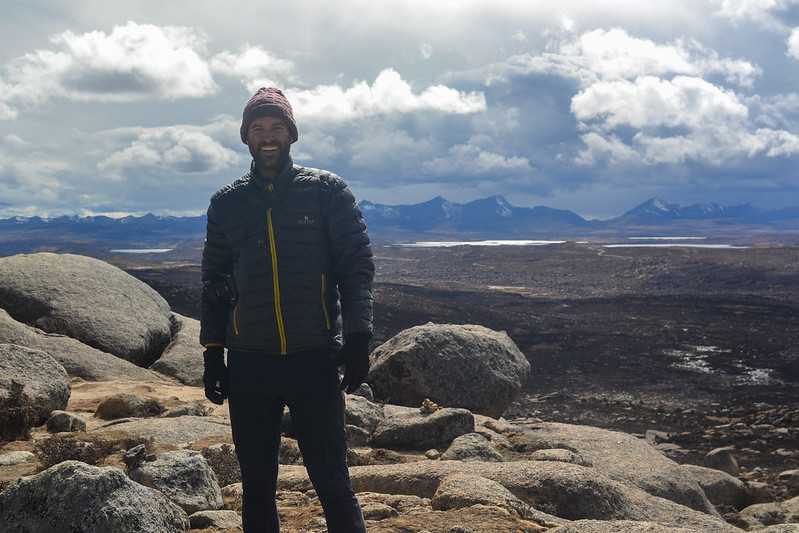
I am a human geographer with interests in the environmental humanities, science and technology studies, and political ecology.
I hold an MSc (Distinction) in Nature, Society and Environmental Governance from the University of Oxford and am currently undertaking a PhD in Human Geography at the University of Glasgow. I have also been a visiting researcher at the Institut de Physique du Globe de Paris (IPGP), the University of Hong Kong, and the Institute of Geographic Science and Natural Resources Research (Beijing, China).
My geographical research benefits from an excellent foundation in the Chinese language and in Chinese language research training and experience. I hold a BA in Chinese and an MA in Sinology, have spent time as a language student at National Taiwan Normal University and Beijing Normal University, and have participated in graduate training conducted in Chinese in subjects including anthropology, history, economics, and environmental studies at the Johns-Hopkins Nanjing University Center for Chinese Studies (Nanjing, China) and National Taiwan Normal University (Taipei, Taiwan).
I have three current research themes:
Critical Anthropocene Studies
This theme critically engages research platforms developed in response to the Anthropocene and mobilises research findings as a contribution to reflexive research collaborations.
My PhD at the University of Glasgow focuses on the circulation of the ‘critical zone’ concept. Referring to the upper surface of the earth between the base of the groundwater and the top of the tree or vegetation canopy, the critical zone has emerged as a framing device for diverse forms of enquiry and practice around the world, initially in the earth and environmental sciences and now also beyond these in the social sciences, arts, and humanities.
During my PhD, funded by a Saltire Emerging Researcher Award from the Scottish Funding Council, I have worked with partners at the Institut de Physique du Globe de Paris (IPGP) on the interaction between critical zone, ecosystem, and socio-ecological research in the Horizon 2020 funded ‘Integrated European Long-Term Ecosystem, critical zone and socio-ecological Research Infrastructure‘ (eLTER-RI).
Funded by an Early Career Mobility Scheme award from the University of Glasgow, I have also worked with researchers from the University of Hong Kong mobilising the critical zone concept as a basis for transdisciplinary education and research. This collaboration was the basis for a collaborative symposium on ‘fast geologies and dynamic coasts’ between the two universities that I convened, which invited an exchange of artistic, archival, curatorial, engagement, pedagogical, and research approaches between 13 architects, artists, museum curators, earth scientists, geologists, geographers, and marine scientists.
Geopolitics (China)
This theme empirically engages the geopolitics of different forms of knowledge production, exploring knowledge practices (Borie et al., 2021), citationary geographies (Livingstone, 2005), cultural geographies (Della Dora, 2021; Rickards, 2015), and land relations (Liboiron, 2021) as contributions to a ‘transfigurative analysis’ (see below), through interviews, textual analysis, visual analysis, citation analysis, and participant/non-participant observation.
Grounded in an analysis of the development of critical zone science in mainland China, my PhD explores the implications of a shift to the sub-surface for territorial imaginaries and governance in China, and places this work in dialogue with a wide range of related conceptual and empirical work in China and internationally. This is something I have progressed through presentation of my PhD research at conference sessions on ‘Redefining the ‘Geo’ in Geo-politics’ (East Asian Regional Conference on Alternate Geography, Taipei, Taiwan, 2022), ‘Practicing the subsurface: ways and means of investigating the below’ (AAG, 2023) and ‘Toward a Political Ecology of Volume’ (RGS, 2023).
Building on my thesis submitted for the MSc in Nature, Society, and Environmental Governance (NSEG) at the University of Oxford, I have also engaged with the science and politics of ‘rocky desertification’ in mainland China. This phenomenon, a form of soil erosion in karst landscapes, has been central to significant interventions in the karst regions of south-west China.
Translation and transfiguration
This more conceptual theme engages the ‘transfigurative analysis’ developed in work by Elizabeth Povinelli (e.g. Povinelli, 2021, 2016) as a contribution to research methodology and praxis. The development of this theme is a key contribution of my PhD research.
As part of this theme, I convened a double session at the RGS-IGB Annual International Conference on the ‘political geographies of ecologies in translation’. This featured presentations from scholars in human geography, sustainability science, the history of science, and comparative literary studies, in response to the question: what are the ecologies animating, and animated by, translation? In asking this question, the session sought to critically engage the circulation of ecologies as the basis for translation thinking and practice in disciplines including anthropology, human geography, and translation studies.
Feel free to get in touch by email at d.edwards.2 [at] research.gla.ac.uk, on Twitter @davidedgeo or on LinkedIn.
References
Borie, M., Mahony, M., Obermeister, N., Hulme, M., 2021. Knowing like a global expert organization: Comparative insights from the IPCC and IPBES. Glob. Environ. Chang. 68, 102261. https://doi.org/10.1016/j.gloenvcha.2021.102261
Della Dora, V., 2021. The Mantle of the Earth: Genealogies of a Geographical Metaphor. The University of Chicago Press, London.
Liboiron, M., 2021. Pollution Is Colonialism. Duke University Press, Durham. https://doi.org/10.2307/j.ctv1jhvnk1
Livingstone, D.N., 2005. Text, talk and testimony: Geographical reflections on scientific habits. An afterword. Br. J. Hist. Sci. 38, 93–100. https://doi.org/10.1017/S000708740400648X
Povinelli, E.A., 2021. Between Gaia and Ground: Four Axioms of Existence and the Ancestral Catastrophe of Late Liberalism. Duke University Press.
Povinelli, E.A., 2016. Geontologies: A Requiem to Late Liberalism. Duke University Press, London.
Rickards, L.A., 2015. Metaphor and the Anthropocene : Presenting Humans as a Geological Force 53, 280–287. https://doi.org/10.1111/1745-5871.12128